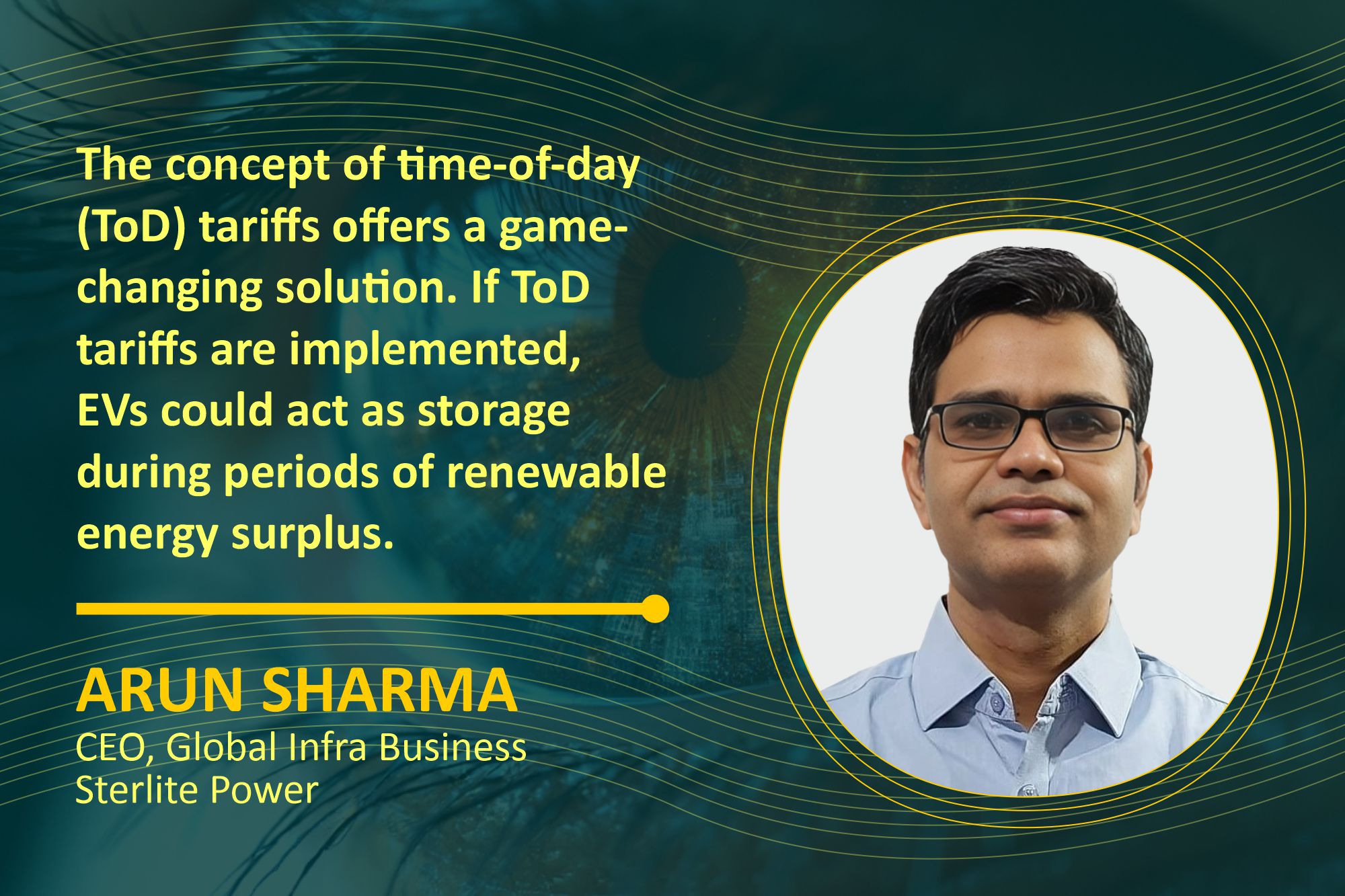EVs can function as efficient energy storage systems
By EPR Magazine Editorial December 23, 2024 7:07 pm IST
By EPR Magazine Editorial December 23, 2024 7:07 pm IST

Energy storage systems and renewable integration have become the focal points in the modern energy discourse. While these topics are widely discussed, a critical analysis reveals a glaring gap in the approach regulators and system managers take. The current emphasis is predominantly on generation-side management, with measures such as round-the-clock supply, firm dispatchable renewable energy (FDRE), and storage-inbuilt solutions being designed to make renewable energy more reliable. However, this approach largely neglects demand-side management, an area ripe with opportunities for innovation and efficiency.
One of the most promising yet underexplored avenues for addressing renewable integration challenges is effectively using electric vehicles (EVs). The energy sector can achieve remarkable advancements by leveraging EVs as decentralised energy storage units. Currently, the dominant strategy is to make generation follow the load curve, but little attention is paid to managing it. This creates inefficiencies and limits the potential for optimal utilisation of renewable resources.
The concept of time-of-day (ToD) tariffs offers a game-changing solution. If ToD tariffs are implemented, EVs could act as storage during periods of renewable energy surplus, such as midday when solar power is abundant. These vehicles can then serve as generators by supplying stored energy back to the grid during peak demand periods when renewable sources are unavailable. This dual functionality not only smoothens the variability of renewable energy but also shifts the capital expenditure for storage infrastructure from energy generators to EV owners, effectively democratising the cost burden. Consumers would be incentivised to participate, as they could draw power from the grid at lower tariffs during off-peak hours and sell stored energy back at higher rates during peak times, creating a win-win situation.
Policy intervention is essential to realise this vision. The penetration of EVs in the current market is insufficient to create meaningful change. Governments need to introduce tax breaks and subsidies to encourage EV adoption. A regulatory push combined with economic incentives could significantly accelerate the adoption of EVs, creating a massive, distributed energy storage network. This shift would also enable the transition of fossil fuel-dependent machines to cleaner electric alternatives, contributing to substantial reductions in greenhouse gas emissions.
Beyond storage, this approach would lower the overall cost of renewable energy. Energy producers could focus on generating solar and wind power while the responsibility for energy storage shifts to EV owners. This reduces the need for expensive storage-inbuilt solutions, making renewable energy more accessible and affordable.
The successful implementation of such a strategy depends on advanced technologies like artificial intelligence (AI) and machine learning (ML). AI-driven demand-side management can predict ToD tariffs, optimise energy distribution, and smoothen the infamous “duck curve” caused by renewable energy’s intermittent nature. Furthermore, AI can enhance generation-side management by optimising asset performance and minimising the need for costly refurbishments, lowering operational costs and increasing system efficiency.However, achieving this transformation requires more than technological solutions. Policy and regulatory frameworks must create an environment conducive to innovation. Ultimately, the integration of renewable energy demands a holistic approach that combines technological innovation, regulatory reforms, and consumer participation. By leveraging EVs as decentralised storage units and introducing ToD tariffs, the energy sector can unlock the full potential of renewable resources. Policymakers must prioritise creating incentives for EV adoption, establishing robust regulatory frameworks, and encouraging the use of AI and ML for demand-side management.
We use cookies to personalize your experience. By continuing to visit this website you agree to our Terms & Conditions, Privacy Policy and Cookie Policy.